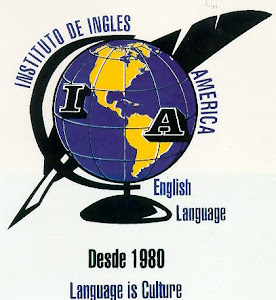Carnival is a festival season. It occurs immediately before Lent; the main events are usually during February or March. It typically involves a public celebration or parade combining some elements of a circus and public street party. People often dress up or masquerade during the celebrations.
Carnival is mostly associated with Roman Catholic and, to a lesser extent, Eastern Orthodox Christians; Protestant areas usually do not have carnival celebrations or have modified traditions, like the Danish Carnival. The world's largest carnival celebration is held in Brazil but many countries worldwide have large, popular celebrations, such as Carnival of Venice.
The origin of the name "carnival" is disputed. According to one theory, it comes from the Latin carrus navalis ("ship cart"),[1] referring to a cart in a religious parade, such as a cart in a religious procession at the annual festivities in honor of the god Apollo. Other sources, however, suggest that the name comes from the Italian carne levare or similar, meaning "to remove meat", since meat is prohibited during Lent.[2] Another theory states that the word comes from the Late Latin expression carne vale, which means "farewell to meat", signifying that those were the last days when one could eat meat before the fasting of Lent. Yet another translation depicts carne vale as "a farewell to the flesh", a phrase embraced by certain carnival celebrations that encourage letting go of your former (or everyday) self and embracing the carefree nature of the festival.
An inspiration for the carnival lies in the fact that during Lent, traditionally no parties may be held and many foods, such as meat, are forbidden; the forty days of Lent serve to commemorate the Passion of Jesus. It is natural for people to have the desire to hold a large celebration at the last possible opportunity before fasting.
Parts of the carnival traditions, however, likely reach back to pre-Christian times. The ancient Roman festival of the Saturnalia is a probable origin of the Italian Carnival. The Saturnalia, in turn, may be based on the Greek Dionysia and Oriental festivals. While medieval pageants and festivals such as Corpus Christi were church sanctioned celebrations, carnival was a representation of medieval folk culture. Many local carnival customs are also based on local pre-Christian rituals, for example the elaborate rites involving masked figures in the Swabian-Alemannic carnival.
In Christianity, the most famous traditions, including parades and masquerading, are first attested from medieval Italy. The carnival of Venice was for a long time the most famous carnival. From Italy, carnival traditions spread to Spain, Portugal, and France. From France, they spread to the Rhineland of Germany, and to New Orleans. From Spain and Portugal, they spread to Latin America. Many other areas have developed their own traditions.
Depending on the area, the carnival may last from a few weeks to several months. While its starting day varies, it usually ends on the day before Ash Wednesday, which is the beginning of Lent. In the Ambrosian rite of Milan (Italy), the carnival ends on the Saturday after Ash Wednesday, and in the area of Eastern Christianity, it ends on the Sunday seven weeks before Easter, since in Eastern tradition lent begins on Clean Monday.
Most commonly the season begins on Septuagesima, the third Sunday before Ash Wednesday, but in some places it starts as early as Twelfth Night or even in November. The most important celebrations are generally concentrated during the last days of the season.
The following holidays, which are all part of the seven days before Ash Wednesday, often have special customs:
Quinquagesima, the Sunday, when often a break from the festivities occurs;
Shrove Monday or Lundi Gras or Rosenmontag, in many areas the high point of the festivities;
Shrove Tuesday or Mardi Gras (Fat Tuesday) or Fastnacht, the high point of the festivities when, according to many traditions, preparations for the parties are made, such as baking goods.
Taken from Wikipedia http://en.wikipedia.org/wiki/Carnival




No comments:
Post a Comment